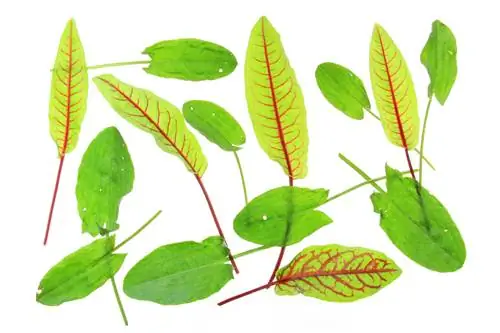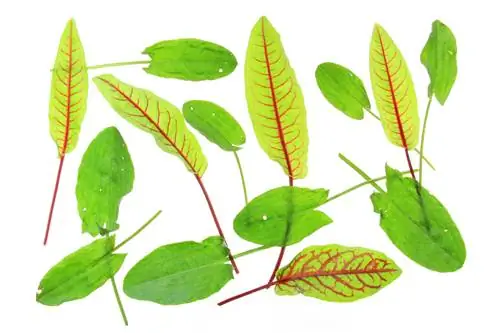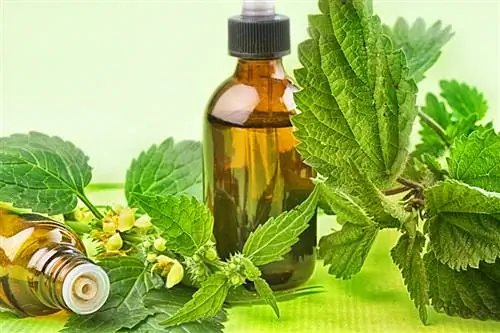- Author admin leonars@hobbygardeners.com.
- Public 2023-12-16 16:46.
- Last modified 2025-01-23 11:20.
The hardy sorrel likes to grow in moist deciduous or riparian forests, but can also easily be grown in the garden. It is easy to care for and quite decorative. The red-veined leaves taste slightly sour and spice up many a salad.

How can blood dock be used?
The uses of blood dock include adding it to salads due to its red-veined leaves and slightly sour taste, as a raw addition to soups and in herbal medicine as a blood purifier, diuretic, appetite stimulant and astringent. However, blood dock should be avoided if you have iron deficiency or kidney disease.
The ingredients of the blood dock
Blood sorrel contains many active substances, some have a healing effect, others are more responsible for side effects. Tannins have an astringent effect, which doctors call astringent. This is very good for wounds that heal poorly; in large quantities it irritates the stomach. Blood dock also contains a lot of vitamin C.
Oxalic acid, which is found in abundance especially in the flowering sorrel, makes it difficult to absorb iron from food and in higher doses can lead to kidney damage. That's why you should never consume large quantities of blood dock or use it over a long period of time.
Use in the kitchen
The blood dock is usually used as a salad addition. This is where the red veining of the green leaves comes into its own. The taste of blood sorrel is milder than that of sorrel. You can also add blood dock raw to the finished soup as a soup addition. He doesn't tolerate cooking very well.
Use in herbal medicine
Because of its blood-purifying effect and high vitamin C content, blood dock was once popular in spring treatments. Today this herb is rarely used for this purpose. Blood dock also has a diuretic effect and stimulates appetite. The astringent effect is often used for inflammation of the oral mucosa.
The most important things in brief:
- high content of oxalic acid
- diuretic
- blood purifying
- appetizing
- astringent (contracting)
- makes iron absorption more difficult
- do not consume during iron therapy or if there is iron deficiency!
- do not consume if you have kidney disease!
Tip
If you suffer from iron deficiency or are currently undergoing iron therapy, then it is better to avoid blood dock and other foods containing oxalone, as this makes it more difficult for iron to be absorbed from food.






